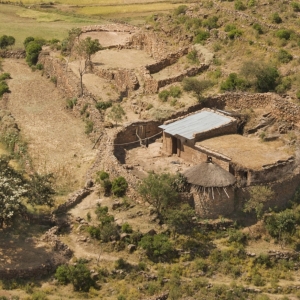The Stream, January 29, 2021: Groups Urge Biden To Remediate Environmental Damage of Border Wall
YOUR GLOBAL RUNDOWN
- Border communities and environmentalists are urging immediate action from the Biden administration to remediate damage caused by the previous administration’s wall along the Mexico-U.S.
- The coronavirus pandemic has worsened the situation of British residents coping with extreme flooding.
- Texas will begin a program to test all school and child care facilities for lead in drinking water.
- Nearly 70,000 San Diegans are behind on their water bills.
Water managers in Colorado unite to prevent the privatization of the state’s water.
“The last thing we need is Wall Street getting in the middle of this as we try to work out the solutions which are going to be really, really difficult to do.” – Taylor Hawes, director of The Nature Conservancy’s Colorado River Program. In a rare move, water managers across Colorado are uniting against Wall Street investors looking to profit from the state’s public water. The Colorado Sun reports that the state’s strict water laws, which require users to put their rights to beneficial use, make it hard to profit off of Colorado’s most precious resource. Still, the threat of privatization could make it easier to convince residents to comply with big, climate-adapting changes as the state prepares for water shortages.
IN RECENT WATER NEWS
In Case You Missed It:
Speaking of Water: China’s Water Challenges in 2021 – Both at home and abroad, water will play a significant role in China’s policy decisions in 2021.
‘Mass Aging’ of Dams a Global Safety and Financial Risk, UN Report Says – Countries ought to plan for end-of-life care, report argues.
The Pandemic Has Worsened Situation For British Residents Dealing With Extreme Flooding
Extreme flooding has compounded the stress of the ongoing coronavirus pandemic for residents across communities in England, BBC reports. In attempts to escape their flooded homes, residents have been forced to interact closely with others outside their bubble. The pandemic has also delayed insurance payouts for some homeowners, causing increased financial strain during Great Britain’s third national lockdown.
TODAY’S TOP WATER STORIES, TOLD IN NUMBERS
25,000 SCHOOLS AND CHILD CARE FACILITIES
Following an update to federal standards on lead and copper exposure, Texas will soon begin a program to test drinking water in the state’s roughly 25,000 schools and child care facilities. The Texas Tribune reports that the Texas Commission on Environmental Quality has assisted with requests from school districts to test water in the past, but this will be the first required inspection by the state. The EPA rule requires full implementation in Texas by 2024, although some state officials worry that without federal funding the target will be tough to meet.
In context: Years After Flint Water Crisis, Lead Lingers in School Buildings Across the Nation
69,600 PEOPLE
More than 69,600 people in San Diego County are in water debt, Voice of San Diego reports. Over half of San Diegans who are in debt owe $300 or less, while 16 percent have delinquent bills exceeding $1000. A report published last week by the California State Water Resources Control Board found that one in eight Californians are behind on their bills. Gov. Gavin Newsom banned utility shutoffs during the pandemic but has not implanted a plan to help residents pay off their debt.
In context: California Households Owe $1 Billion in Water-Bill Debt
ON THE RADAR
The Guardian reports that border communities and environmentalists are urging President Joe Biden to remediate environmental and cultural destruction caused by former President Donald Trump’s wall along the southern border of the United States. The groups are asking Biden to rescind waivers suspending over 80 federal environmental protection laws and assemble a team of experts in order to restore critical habitat, waterways, wildlife migration corridors and tribal cultural sites, among other requests. Constructing the border wall has already drained tens of millions of gallons of groundwater from springs, rivers and wetlands and restricted access to floodplains that dozens of small, impoverished communities depend on for drinking, sanitation and livestock.
In context: Border Wall Concerns in Lower Rio Grande Valley Diminished by Virus and Growth
Jane is a Communications Associate for Circle of Blue. She writes The Stream and has covered domestic and international water issues for Circle of Blue. She is a recent graduate of Grand Valley State University, where she studied Multimedia Journalism and Women, Gender and Sexuality Studies. During her time at Grand Valley, she was the host of the Community Service Learning Center podcast Be the Change. Currently based in Grand Rapids, Michigan, Jane enjoys listening to music, reading and spending time outdoors.







Leave a Reply
Want to join the discussion?Feel free to contribute!